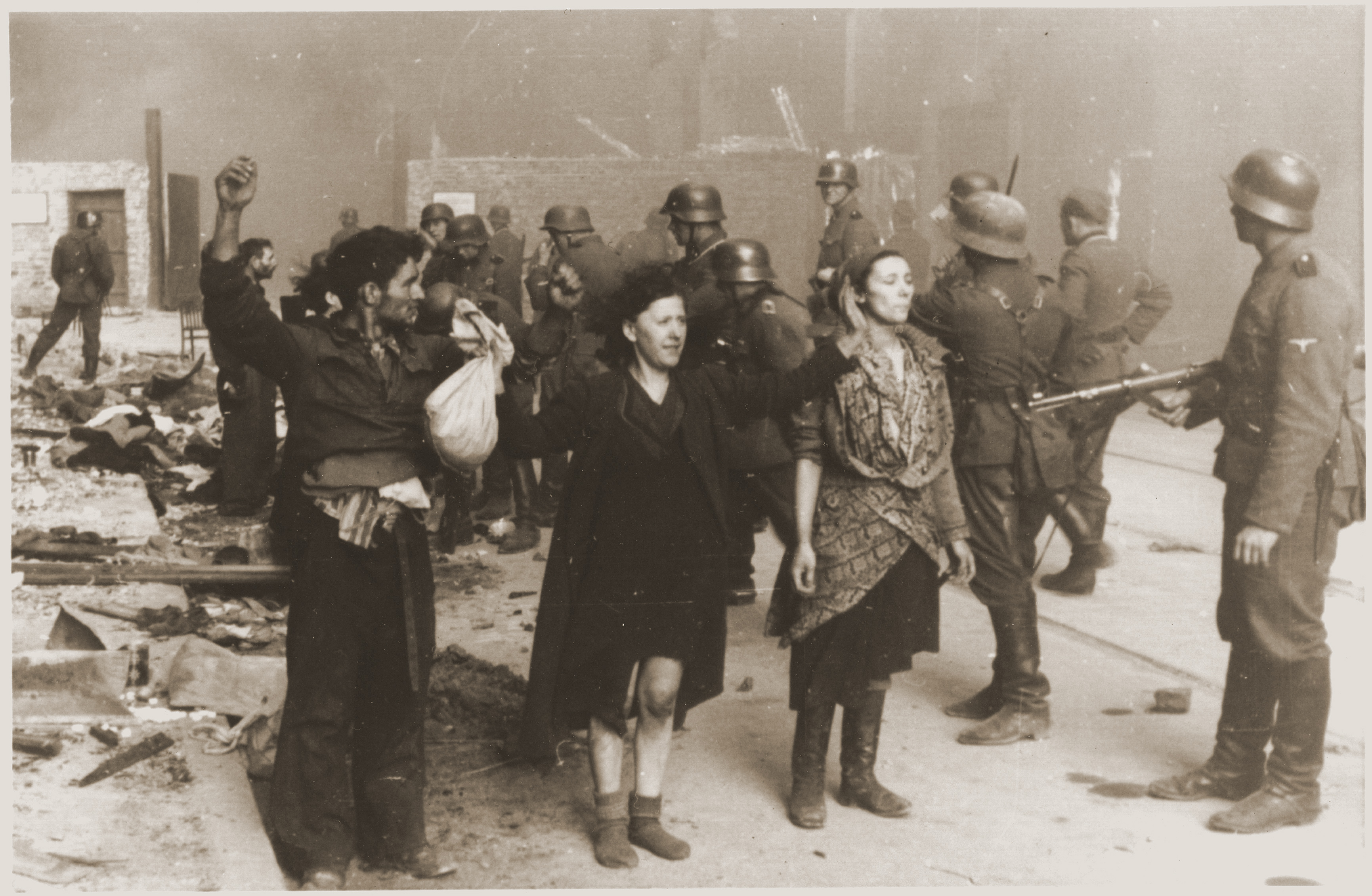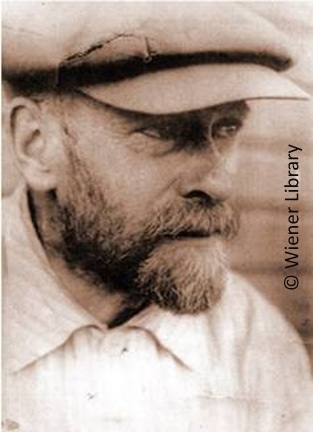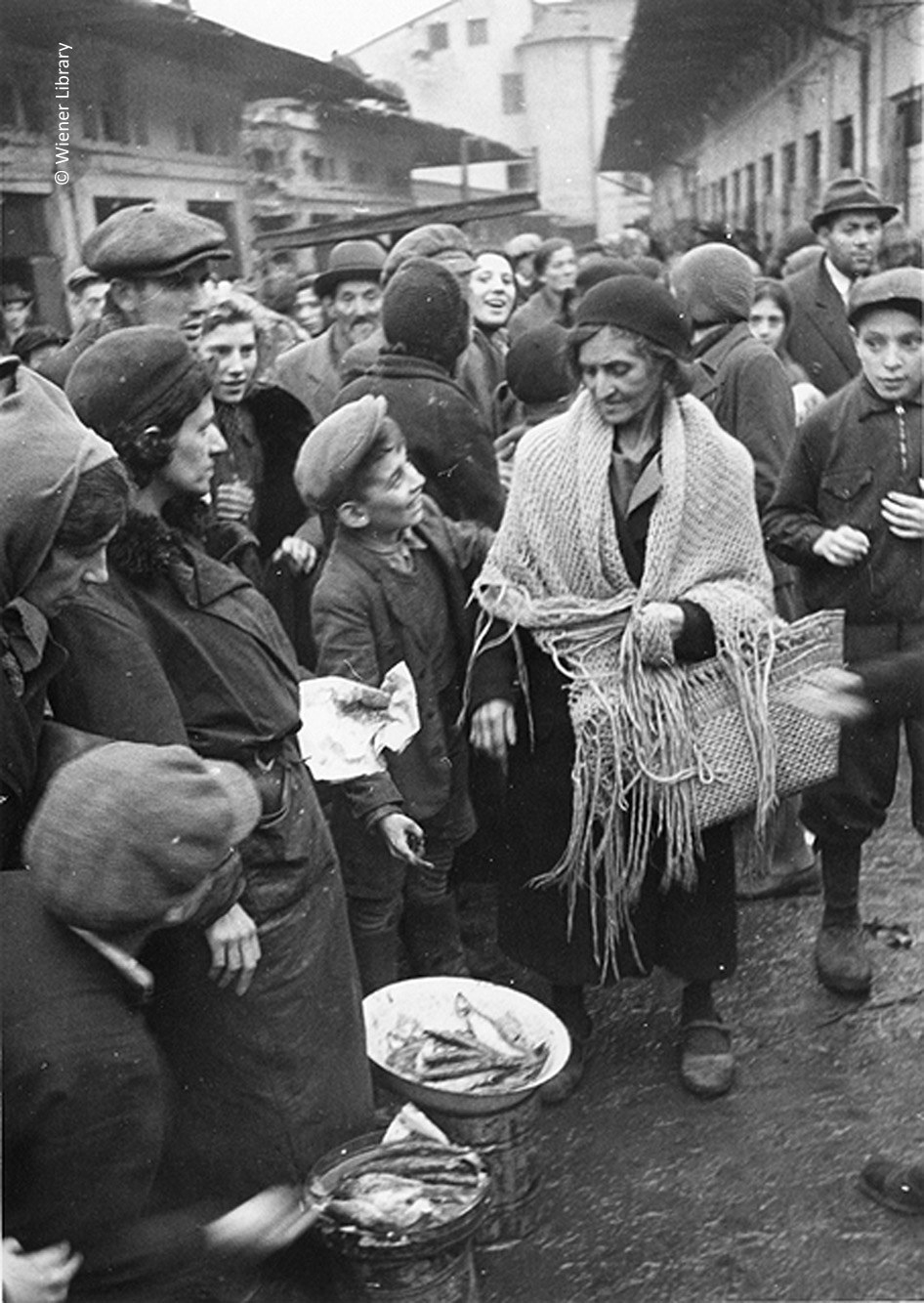16 May 1943: Warsaw Ghetto Uprising ends
16 May marks the end of the Warsaw Ghetto Uprising, which started on 19 April 1943. Approximately 750 of the ghetto inhabitants fought the Nazi regime to resist being rounded up and taken to death camps and concentration camps.
Following the invasion of Poland, the Warsaw Ghetto was created in October 1940 to house Jews from the city and surrounding towns. Several hundred Roma and Sinti (Gypsies) were also imprisoned in the Ghetto.
At one point more than 400,000 people lived in the Ghetto, in cramped, over-crowded conditions. Thousands of people died of disease, hunger or cold, or were murdered by the guards.
Mass deportations from the Warsaw Ghetto began in July 1942. By September of that year approximately 300,000 Jews had been deported, the majority of them to the Treblinka death camp. As news reached Warsaw that deportations to killing centres were to take place, pockets of armed resistance broke out and deportations were suspended until later in the year.
When the Nazis entered the Warsaw Ghetto on 19 April 1943 to carry out its ‘liquidation’, approximately 750 of its inhabitants, led by Mordecai Anielewicz, fought the well-armed and trained SS soldiers. Anielewicz was the leader of the ŻOB (Żydowska Organizacja Bojowa or Jewish Fighting Organisation), an organisation which had formed in the Warsaw Ghetto and comprised several different Jewish Movements and groups. The revolt lasted nearly one month until it was finally subdued on 16 May 1943. Most of the ŻOB fighters, including Anielewicz, were murdered in the fighting.
More than 56,000 Jews were taken from the Warsaw Ghetto during the ‘liquidation’, with 7,000 being shot upon capture and the remaining 49,000 deported to concentration camps.
While the uprising was ultimately unsuccessful, it did inspire revolts in other ghettos and in camps, and reminds us that we can all make the choice to resist discrimination, hatred and exclusion where we see it taking place.



